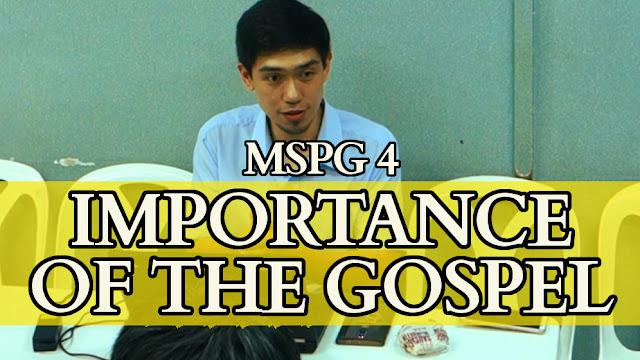Missions: Go Deep or Go Wide? (Part 3)
In the two previous articles, we saw that mission work should have two aspirations: to go deep and to go wide. Between these two, however, there is one priority: go wide. I did say that prioritizing depth over breadth does not mean that we stop working for, aspiring for, and praying for greater breadth. Today, I want to clarify how that can be. Borrowing heavily from Andy Johnsons' book, Missions: How the Local Church Goes Global, I want to suggest two things:
- We should have a strategic emphasis on expansion.
- We should have a strategic commitment to strengthening.
A Strategic Emphasis on Expansion
Given Paul’s example (cf. Rom 15:20-21), the great need of the Least Reached People Groups (LRPs), and the church’s historic and persistent neglect of LRPs, it should be a strategic focus of missions to prioritize areas and peoples that are most isolated from the gospel.All other things being equal, you should generally fund the work among the unreached. I know there are extenuating circumstances, and strategies to reach the unreached from a more reached place exist. Yet the general leaning of the New Testament seems to be toward churches spreading the gospel to "those who have never been told of him." (Johnson, p.63)
A Strategic Commitment to Strengthening
That being said, the Bible clearly indicates that the second task of missions is to strengthen believers in already-reached areas. No mission program can neglect this and claim to be faithful to Scripture.Putting churches into better biblical order also was high on Paul’s agenda, and it should probably be higher on our agenda too. It can be exciting to send and support workers who are pushing back the boundary of darkness in a community unreached by the gospel. But Paul also demonstrates that it is worth investing some of our best people in church strengthening where the gospel is already known and churches already exist. … Along with helping churches to be biblically structured, Paul wants to establish sound, robust biblical doctrine and to guard new churches against error and false teaching. He is willing to invest perhaps his most valued associate not in his pioneering work in Macedonia but in the ongoing work of building healthy churches in Ephesus. (Johnson, 63-64)
 Balancing the Two
Balancing the Two
The need to strengthen young churches must not be neglected, and this will take patience and commitment (see below). But at the same time, we have to always be on guard against losing the strategic emphasis on frontier work.
 Picture: A Two-Pronged Ministry in Eastern Europe
Picture: A Two-Pronged Ministry in Eastern Europe
In his book, Johnson shares a story that I think is a good illustration of the principle s we've discussed over the past three articles:
s we've discussed over the past three articles:I know a missionary in a large eastern European city with several million Muslim guest workers from all across Central Asia. He moved there to try to reach, train, and mobilize Muslim converts. He encouraged them to return to their home nations to plant disciple-making churches throughout Central Asia. Yet, unlike many missionaries, he didn’t ignore the local Protestant churches in his city, even though they had a reputation for suspicion and disdain toward their Muslim neighbors. While he personally worked to reach Muslim immigrants with the gospel, he also invested in existing churches from the majority culture. He built trust. He looked for local Christians with gospel maturity. Then, slowly, he began to connect them with Muslim converts. They were amazed to meet former Muslims who had genuinely embraced the truth of Christ and were passionate to return home with that message. Then, building on years of experience evangelizing Muslims, he began to help local church leaders develop efforts to evangelize Muslims themselves.
On a recent visit with this friend, I sat in the small parlor of his Soviet-era apartment. As I drank tea and looked out at the masses milling about in the park below, I asked about prospects for the future. The situation for foreigners was getting more complicated. The possibility of being forced out by the government was looming larger. My friend and his wife were grieved at the idea that they might have to leave the city and people they loved. But then he looked across his tea and told me, with a kind of unflinching confidence, that it was too late. Even if the government deported them right then, their ministry and passion for reaching Muslim immigrants had spread across half a dozen local churches and was spreading farther and faster all the time. Just a few months earlier, some of those churches had, on their own, hosted a meeting to encourage and train other churches in Muslim evangelism. The torch had been set to the wood. Banishing the torchbearer now would accomplish nothing.
I found myself pondering how things might have been different if this couple had decided to go it alone. What if they had believed their Western methodologies were superior to the existing local churches and so ignored them entirely? What if they had been so committed to rapidly planting new churches that they felt they had no use for the churches doing gospel work for generations in that culture? Thankfully, they didn’t make these mistakes. As a result, I expect their impact will quietly continue among these other churches until Christ returns.May the Lord help us to apply this for His greater glory!



